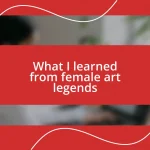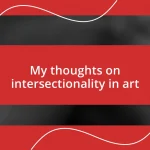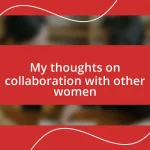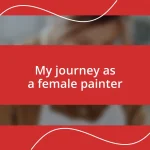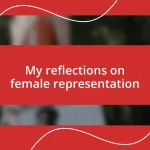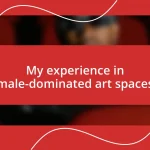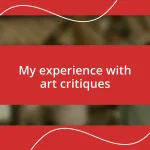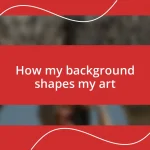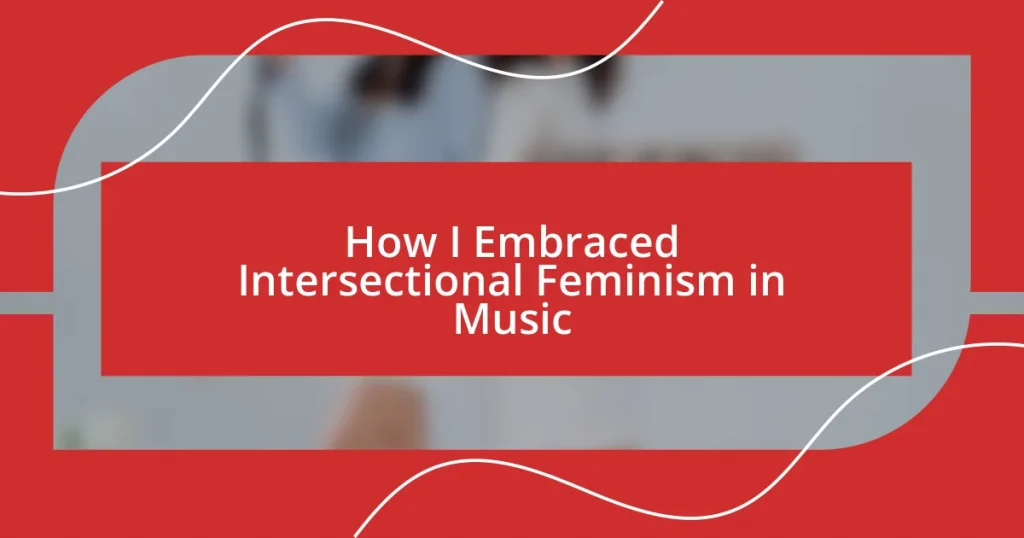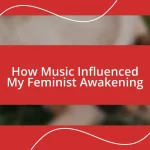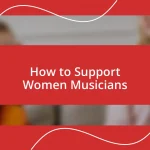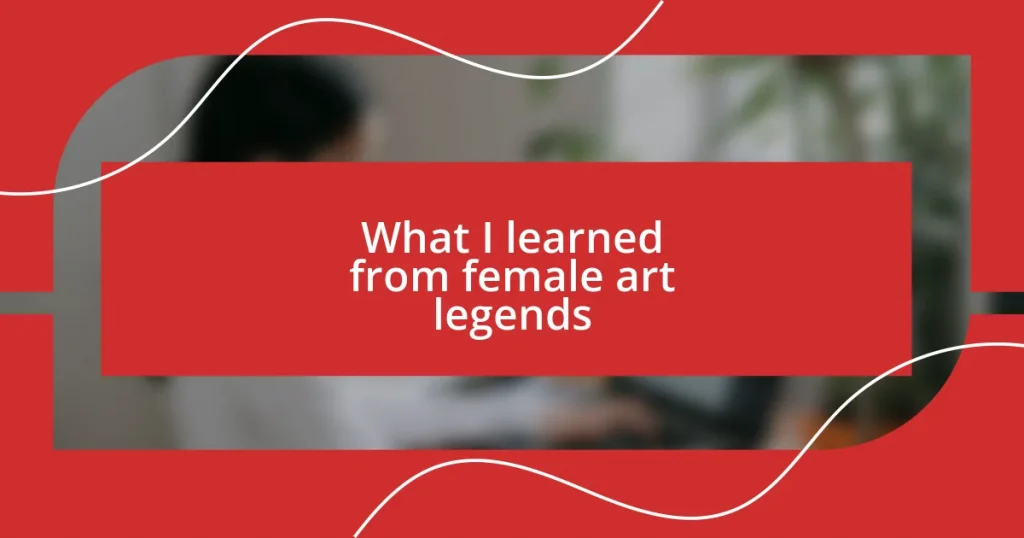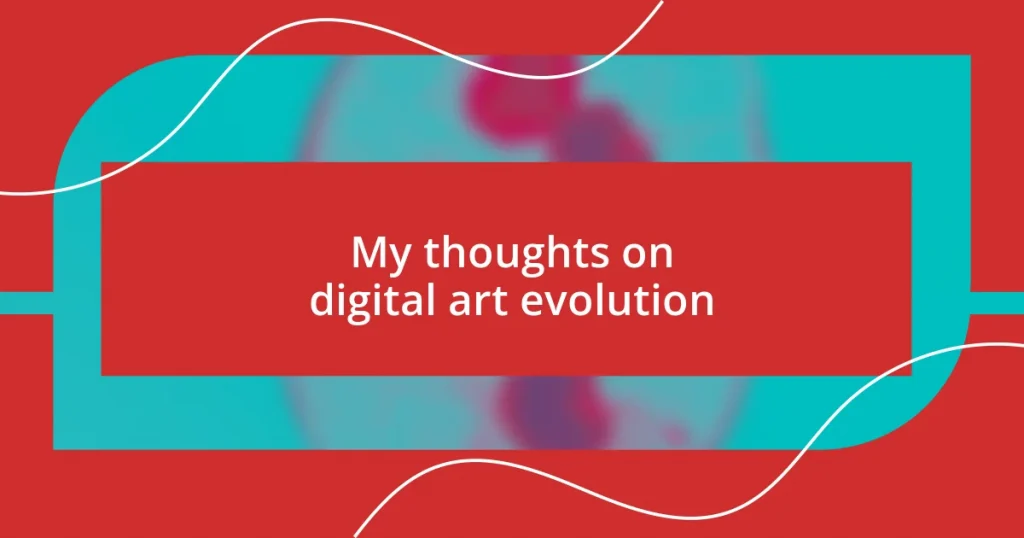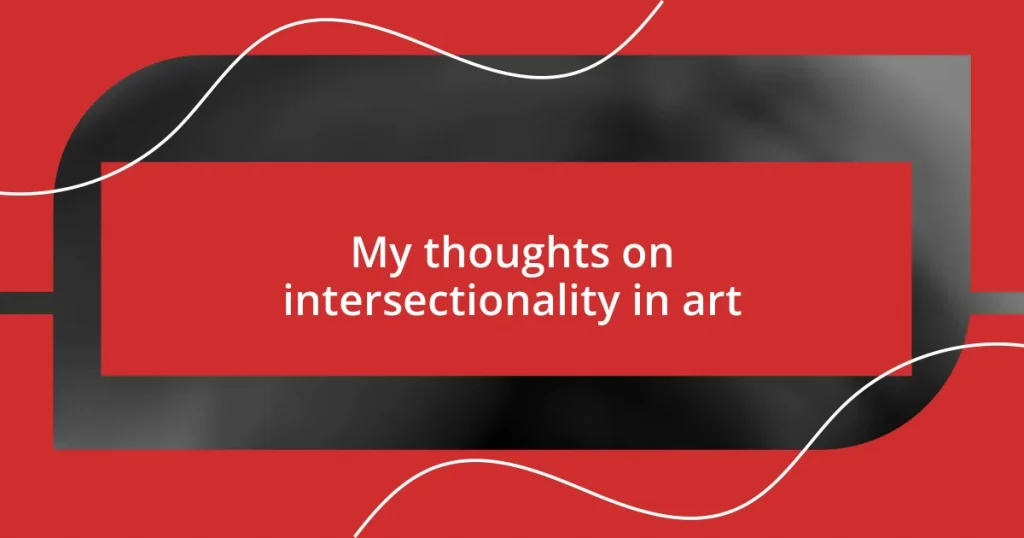Key takeaways:
- Intersectional feminism highlights the importance of recognizing diverse identities and experiences within feminism, particularly in music.
- Feminism in music serves as a catalyst for social change, amplifying underrepresented voices and challenging societal norms.
- Creating inclusive music spaces and empowering marginalized voices enhances community, representation, and transformative artistic experiences.
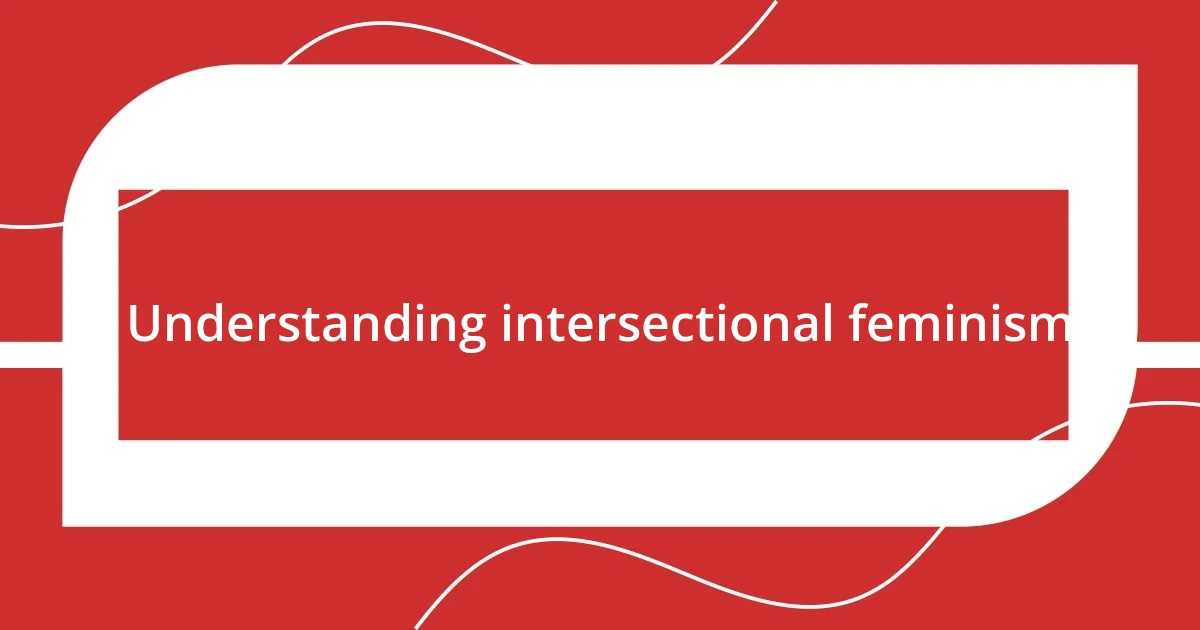
Understanding intersectional feminism
Intersectional feminism fundamentally recognizes that people’s experiences of oppression and privilege are shaped by various overlapping identities, such as race, gender, sexuality, and class. I remember the first time I attended a seminar on this topic; I was struck by how interconnected our struggles are. It made me question, how can we support one another without acknowledging these nuances?
As I dove deeper into this movement, it became clear that ignoring intersectionality means overlooking vital perspectives within feminist discourse. I recall a conversation with a friend who identified as a woman of color; she opened my eyes to how her experiences were often marginalized even in feminist spaces. This realization led me to ponder why certain voices are sidelined, and it deeply resonated with my own journey in the music industry.
Understanding intersectional feminism has transformed the way I approach not only social issues but also my creative expression. It’s not just about equality but about weaving diverse narratives that reflect our rich tapestry of identities. Have you ever thought about how your own background shapes your perspective? This question invites a reflection that I find incredibly valuable when discussing art and activism.
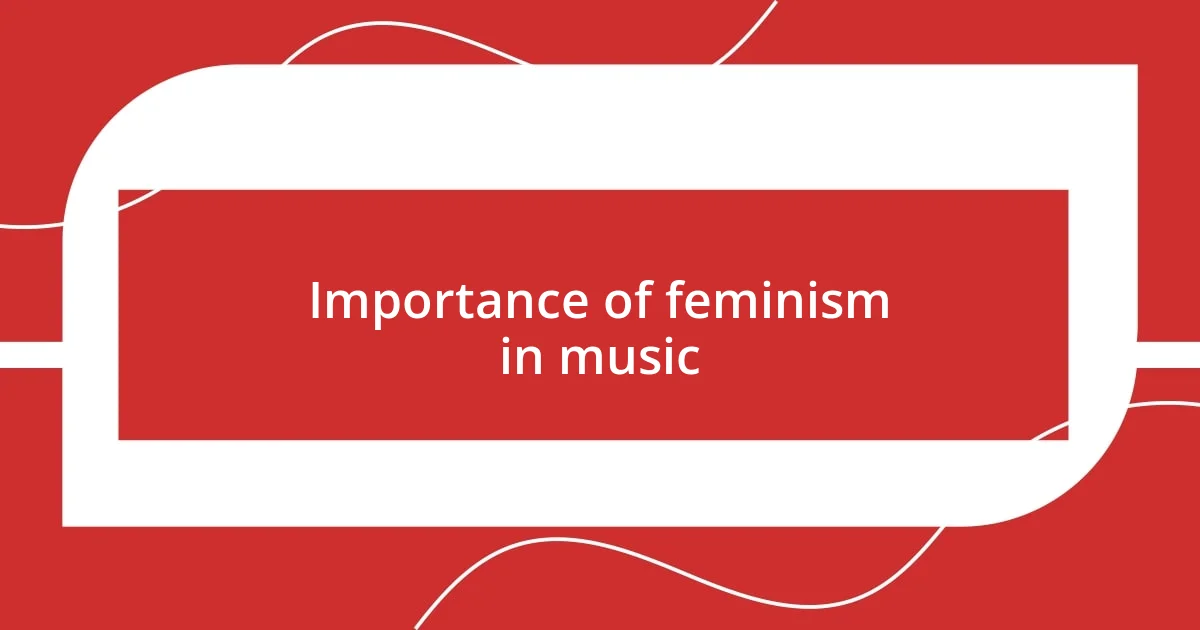
Importance of feminism in music
Feminism in music is crucial for amplifying underrepresented voices and dismantling barriers in the industry. I vividly remember attending a concert where the lineup was dominated by male artists. It struck me how the lack of female representation not only affected the lineup but also the energy in the crowd. When women take the stage, there’s an authenticity and a unique perspective that enriches the experience, making it more relatable and inclusive.
Moreover, feminism encourages artists to challenge societal norms through their work. I once collaborated with a female musician who wrote a song about her experiences with harassment. The raw emotion in her lyrics made me realize how music can serve as a powerful vehicle for change, inspiring listeners to confront uncomfortable truths. It’s a reminder that music isn’t just entertainment; it can also be a catalyst for social awareness and transformation.
The importance of feminism in music extends beyond individual stories; it shapes the entire cultural landscape. When I think back to iconic female artists like Nina Simone and Billie Holiday, I realize they used their platforms to advocate for civil rights and equality. Their legacies motivate me to carry that torch forward, demonstrating how music can unite us in our common struggles while celebrating our diverse identities.
| Impact | Example |
|---|---|
| Amplifying Underrepresented Voices | Female artists share their unique experiences, influencing perceptions in music. |
| Challenging Societal Norms | Music becomes a platform for social justice and awareness, encouraging listeners to confront difficult issues. |
| Cultural Legacy | Iconic female artists inspire a new generation to use their voices for change. |
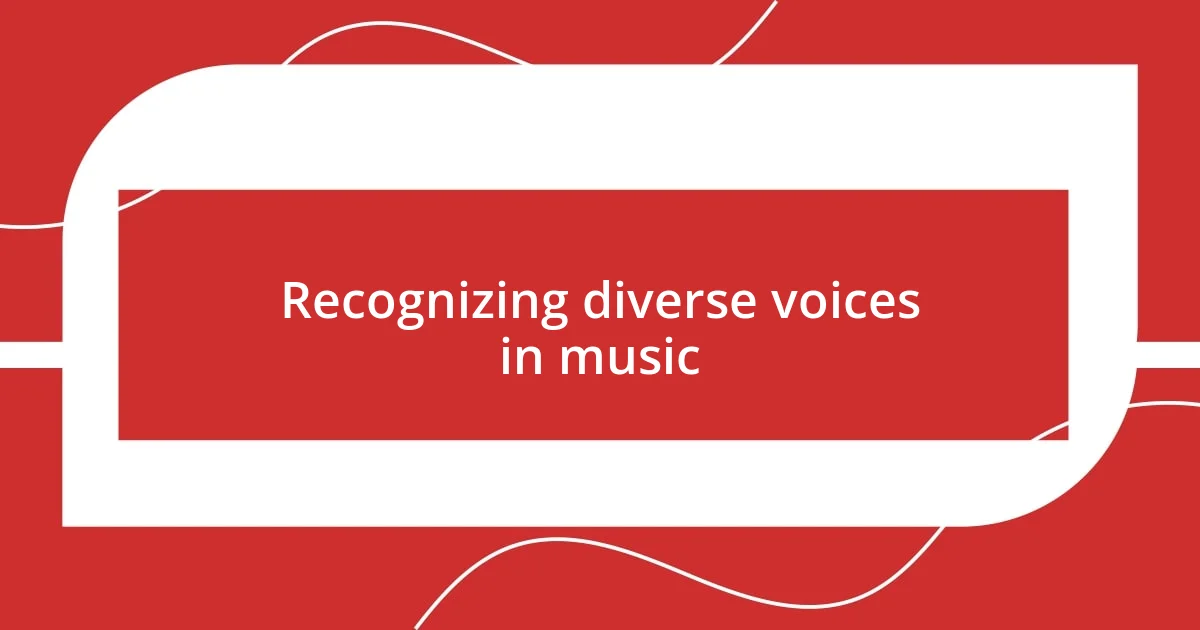
Recognizing diverse voices in music
Recognizing diverse voices in music means celebrating the myriad experiences and perspectives that contribute to our understanding of the genre. I can vividly recall the first time I heard a queer artist weave their identity into their music. It was an awakening moment, realizing how their unique narrative added layers of richness that I had previously overlooked. This kind of representation is essential; it not only broadens the dialogue within the music scene but also offers solace to listeners who might feel marginalized.
- Diverse voices challenge the traditional narratives in music.
- They highlight the unique struggles of various communities, fostering empathy and understanding.
- This recognition creates an inclusive environment, encouraging new talent to emerge and express authentic experiences.
Every time I play an album by an artist from a different cultural background, I feel like I’m being invited into a world that expands my own perception. Recently, I attended a music festival featuring a lineup with incredible artists from diverse backgrounds. Each performance was a celebration of different stories, and I remember feeling a sense of unity in sharing those experiences. This event left me with a profound understanding of how essential it is to elevate and support these voices, as they not only enrich the music but also foster a sense of community among listeners.
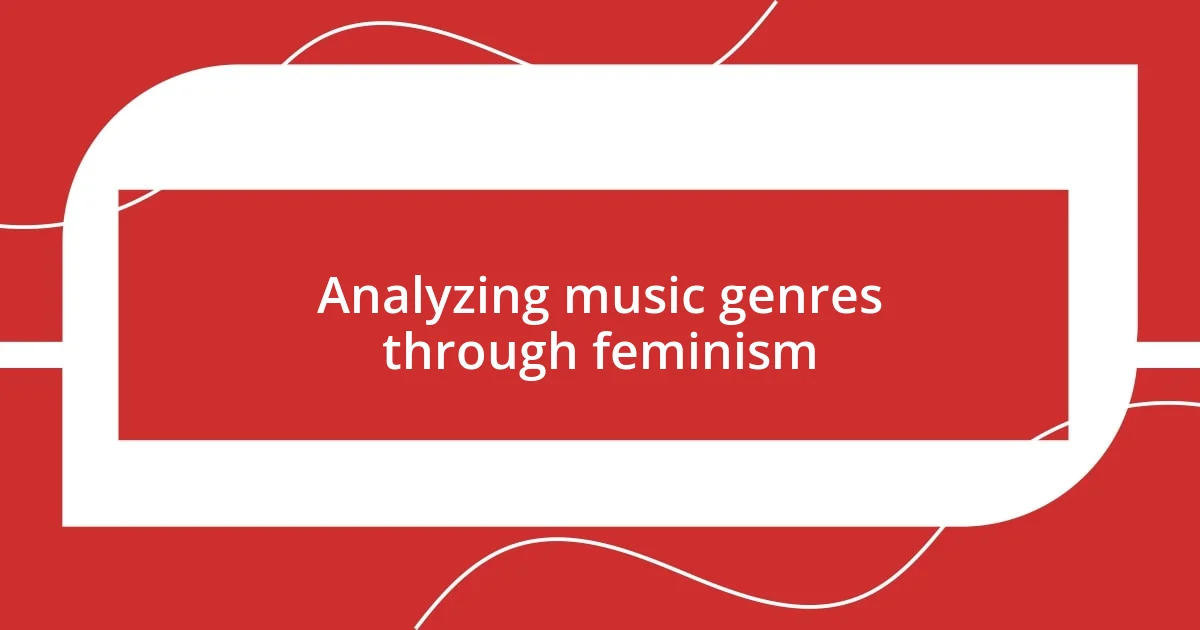
Analyzing music genres through feminism
Music genres are deeply intertwined with societal structures, often reflecting the inherent inequalities women face. I remember jamming to punk music in my teenage years and feeling an immediate connection to the raw energy and rebellion in the lyrics. But, it was eye-opening when I explored how female punk bands not only challenged the music scene but also societal norms around femininity. It made me question: why are women’s voices often sidelined in discussions about genre evolution? Their narratives are not just additions; they are essential to the story of music.
When analyzing hip-hop, I encountered a fascinating dynamic. Artists like Missy Elliott and Nicki Minaj have brought feminist themes to the forefront, weaving their struggles and triumphs into their lyrics. This genre, often criticized for its portrayal of women, surprisingly also serves as a platform for empowerment, allowing female artists to reclaim their narratives. Reflecting on this, I can’t help but feel inspired by the ways these women navigate a male-dominated space. Their presence reshapes our understanding of what hip-hop can represent.
In examining country music, I found a similar phenomenon. Growing up, I listened to artists like Dolly Parton, who effortlessly blended personal stories of struggle with themes of resilience and independence. It prompted me to recognize the power of authenticity in songwriting. How can we look at country music through a feminist lens? It’s about time we appreciate how these artists provide not just entertainment but also powerful messages that resonate with listeners on profound levels, allowing us to connect over shared experiences and aspirations.
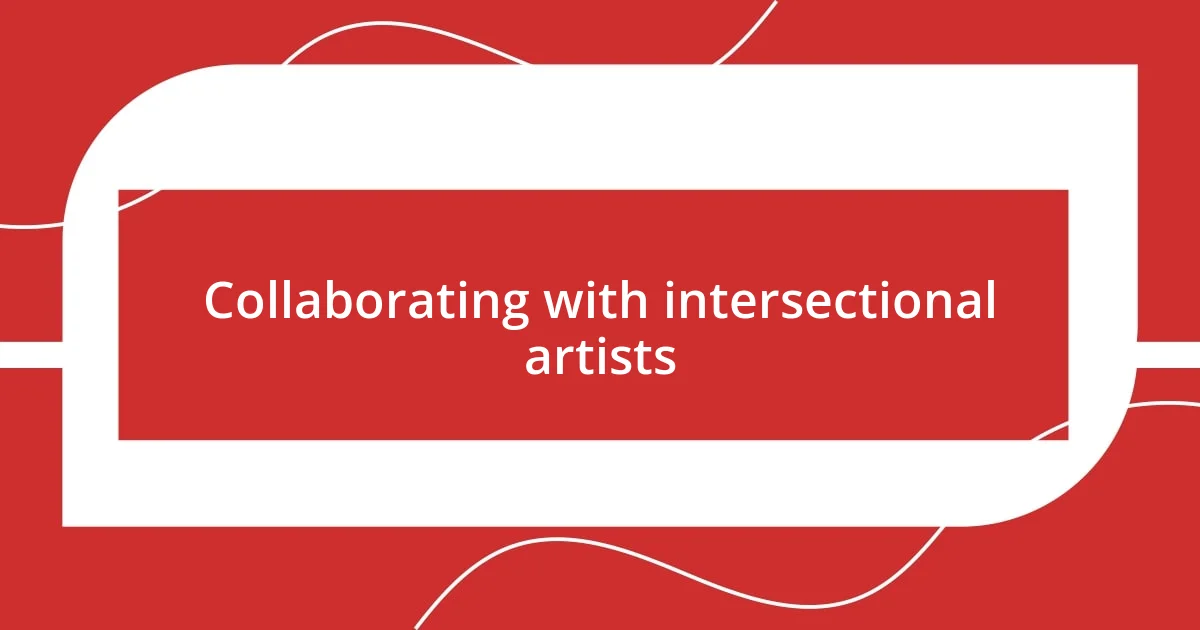
Collaborating with intersectional artists
When I think about collaborating with intersectional artists, I recall a project I worked on with a group of musicians from various cultural backgrounds. It was fascinating to see how their individual experiences shaped the music we created together. Each artist brought a unique perspective to the table, sparking conversations that transformed our sound into something truly innovative and reflective of our diverse lives.
One particular experience stands out. I teamed up with a non-binary artist whose lyrics explored themes of identity and belonging. Their authenticity challenged me to dig deeper into my own fears and joys, leading to a powerful creative synergy. This collaboration wasn’t just about blending styles; it was a shared journey of vulnerability that resulted in a song that resonated with listeners in ways I hadn’t anticipated.
As we navigated these artistic exchanges, I began to wonder: what if every music collaboration had the same depth of understanding? Imagine the potential for growth if artists embraced the power of intersectionality in their work. It’s a reminder that collaborations can be more than just partnerships; they can be transformative experiences that amplify not only our voices but also the narratives that need to be heard.
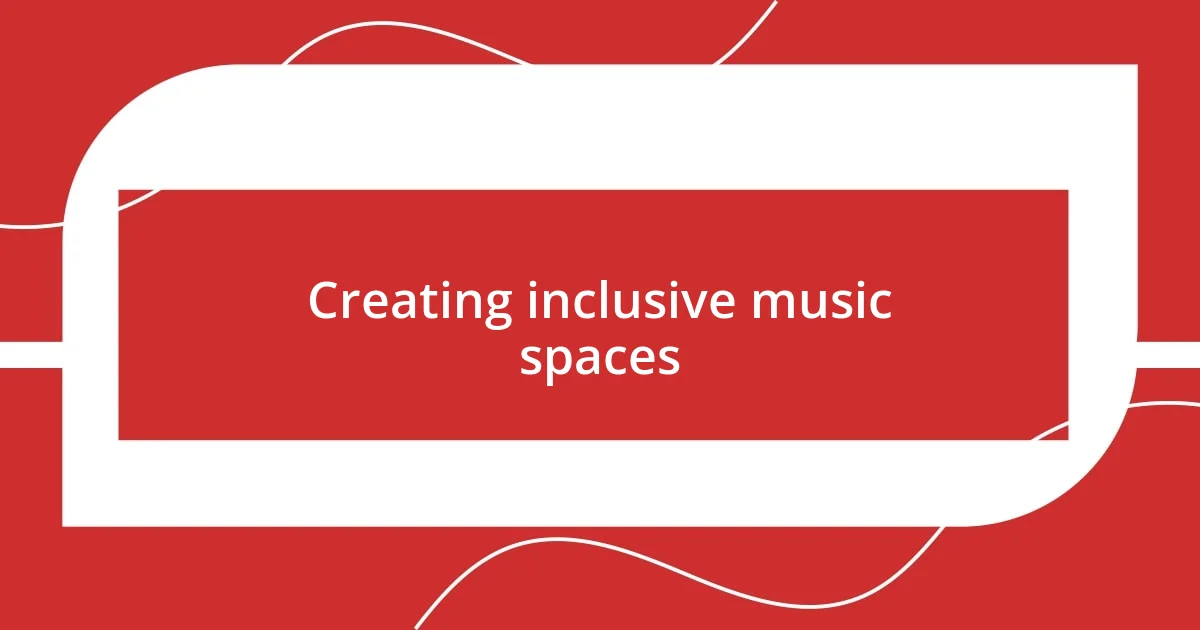
Creating inclusive music spaces
Creating inclusive music spaces starts with recognizing the power of community. I’ll never forget the first time I attended a women’s open mic night. The atmosphere was electric, filled with diverse voices and stories that often go unheard in mainstream venues. It struck me how vital these spaces are—not just for showcasing talent, but for fostering a sense of belonging and solidarity. Why do we so often isolate our music experiences? By coming together, we elevate one another’s narratives, creating a collective strength that resonates deeply in our art.
I’ve also noticed that accessibility plays a significant role in inclusion. During a recent festival, I was blown away by how they incorporated sign language interpreters and focused on wheelchair-friendly setups. It wasn’t just an afterthought; it felt like a genuine effort to welcome everyone into the music experience. Reflecting on it, I ask myself, how can we expect true inclusivity without considering the physical barriers some face? That moment reminded me that inclusive music spaces are not just about genre or identity; they’re about ensuring everyone can participate, listen, and feel represented in the music they love.
Furthermore, the importance of education in these spaces can’t be overstated. I’ve attended workshops that dive into music theory through an intersectional lens, and it completely transformed how I engage with music. These sessions encourage participants to share their own experiences and understand how different backgrounds influence art. I often wonder: what if music education systems embraced this transformational approach? By doing so, we could cultivate a new generation of musicians who not only appreciate diversity but actively contribute to inclusive music spaces from the very beginning of their artistic journeys.
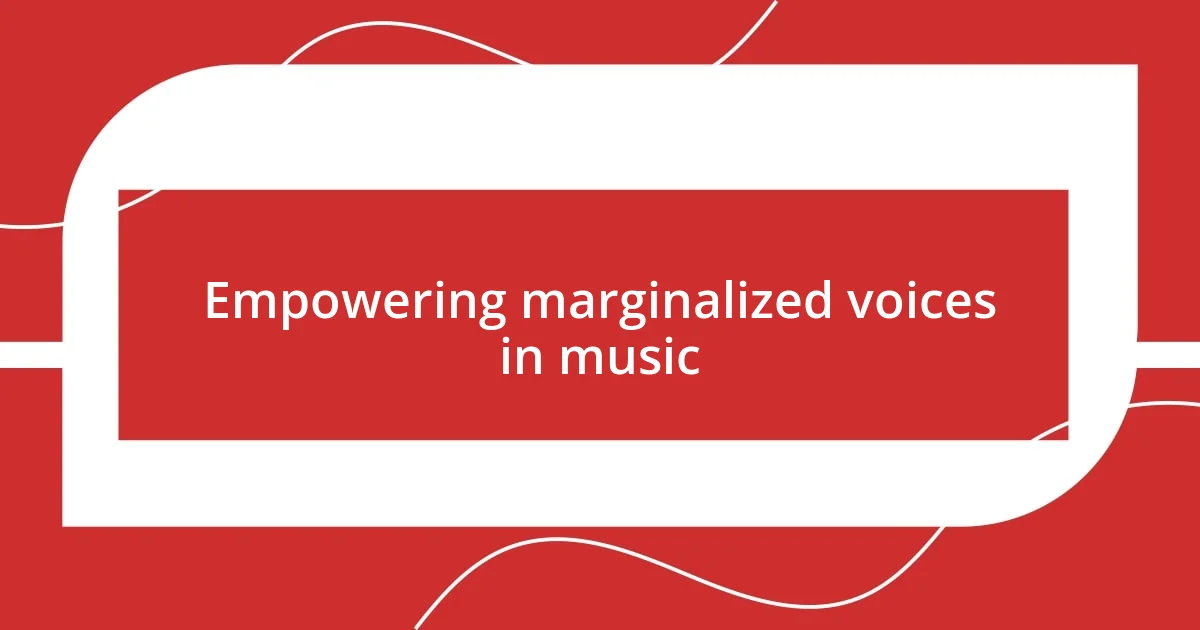
Empowering marginalized voices in music
Empowering marginalized voices in music requires intentional effort and a genuine commitment to listening. I remember attending a concert where the lineup featured artists from underrepresented communities. Each performer brought raw emotions and stories that captivated the audience and made me reflect on my own privilege. It struck me that in these moments of vulnerability, music transcends mere entertainment—it’s a vehicle for healing and understanding. Isn’t it fascinating how a single song can encapsulate the struggles and triumphs of entire communities?
One of my most memorable experiences was during a songwriting workshop led by queer artists. They invited us to share our personal stories, and I was amazed at how the room transformed into a safe haven. When one participant recounted her journey as a Black woman in the music industry, I felt the weight of her words resonate deeply within me. This moment made it clear how vital it is to create spaces where marginalized voices can be amplified. So, how do we ensure that these stories don’t just fill the silence but inspire change?
Reflecting on this, I realize that the music industry has an immense responsibility. I often think about how labels and platforms can elevate minority voices. For instance, a local radio station I listened to began featuring playlists that spotlighted female and non-binary artists. This initiative not only diversified their content but also inspired countless listeners to seek out music that reflects a broader spectrum of experiences. Wouldn’t it be amazing if every music platform made it a priority to champion these voices? By taking these steps, we can collectively reshape the soundscape of music—making it richer and more inclusive for all.
